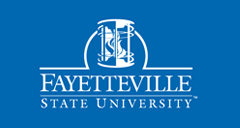Policies
Contents
Focus and Scope
For more information, please see Journal of Research Initiatives Aims and Scope page.
Section Policies
Words from the Chancellor
Editors: Linda Wilson-Jones
✓Open Submissions ✓Indexed ✓Peer Reviewed
Editorial
Editors: Linda Wilson-Jones
✕Open Submissions ✓Indexed ✓Peer Reviewed
Articles
Editors: Linda Wilson-Jones
✓Open Submissions ✓Indexed ✓Peer Reviewed
Book Reviews
JRI accepts book review submissions that have not been previously published or that are not currently under consideration by other journals or publications. Book review articles may vary and range from 1,000 to 2,500 words. Reviews must be sent as a word document and submitted online through the journal’s website.
Detailed information about the reviewed book should be listed in the following order: Book title; author(s); publication year; publisher; city; total number of pages; price as it applies to hardcover and/or paperback copy; hardcover or paperback.
The reviewer's name, academic degree, title, and contact details (institutional affiliation mailing address, phone number, and e-mail address) should be listed. Book reviews should follow APA format. The submission should include a detailed synopsis of the book and should be suitable for the K-12 and Higher Education readers.
Editors: Linda Wilson-Jones
✓Open Submissions ✓Indexed ✓Peer Reviewed
Research Best Practices
Guidelines for peer-reviewed best practices articles
Best Practices articles provide readers with practical information, ideas and suggestions that they can immediately apply in their educational settings and readily share with their colleagues. Articles that appear in this section discuss a specific education topic or subject matter, such as, digital literacy, challenges of first-year college students, course and program design, multiple roles of the college professor, designing generally, etc. these articles present information that the reader can easily absorb after reading.
Consider one of these ways of organizing your article:
- Provide a step by step, “how to,” instructional discussion of the topic.
- Discuss the subject from a particular point of view or angle.
- Offer a timeline of the subject.
- Discuss the topic by way of presenting a case study of how it was applied in a work setting. Focus on lessons learned and successes experienced
Tone and style:
- Most Best Practices articles are written in the third person. In other words, the article speaks directly to the professionals; it should not contain “you” statements
- The article should not be a commercial promotion for a specific product, school or university. It should be informational—that is, it should be an educational idea or concept-focused rather than product- or school/university-focused.
1,200 - 1,800
Additional information:
- Provide background information on the author(s) along with a brief description and contact information for the institution, if applicable.
- Some Best Practices articles are accompanied by a section that highlights services related to the editorial topic. If your educational institution has such a product, please submit a press release.
- Let the editorial staff know whether the article has been submitted to other publications. Reprints generally are not published.
Editors: Linda Wilson-Jones
✓Open Submissions ✓Indexed ✓Peer Reviewed
Commentary
Editors: Linda Wilson-Jones
✓Open Submissions ✓Indexed ✕Peer Reviewed
Announcements
Editors: Linda Wilson-Jones
✓Open Submissions ✓Indexed ✓Peer Reviewed
Peer Review Process
Articles will be judged by a group of academic editors who are active and respected researchers, who have expertise across the relevant disciplines, and who are committed to assessing submissions efficiently and fairly on the basis of their scientific merits. Our approach to the editorial process focuses on delivering the highest level of service to authors and saving time at every step. Here’s how it will work:
The Editor-in-Chief assigns a member of the Editorial Review Board to oversee the review process. The reviewing editors will usually review the article in consultation with other selected reviewers. Each article will be review by (3) members of the Editorial Review Board.
Reviewers get together online to discuss their recommendations – communicating openly with one another before a decision is reached, refining their feedback, and working to provide clear and concise guidance to authors. If the work needs essential revision before it can be published, the reviewing editor incorporates those requirements into a single set of instructions for the author to move ahead to the next step. We aim to deliver decisions after peer review within four weeks.
Further rounds of revision will be largely eliminated, as the reviewing editors will be able to assess most revised submissions without further outside review.
We’ll post the decision letter and author responses alongside articles published in JRI subject to author agreement, so readers can assess and comment on the review conversation, too.
In the end, authors will know sooner than later if they have a paper of the caliber expected for JRI, spend less time on revisions, and get your results published more quickly.
Publication Frequency
The Journal of Research Initiatives is an annual peer-reviewed academic journal that publishes research and conceptual articles, book reviews, best practices, and commentaries relevant to educational issues in K-12 and Higher Education. It was established in 2013 and the editor-in-chief is Linda Wilson-Jones (Fayetteville State University). The Office of Research Initiatives, located in the School of Education at Fayetteville State University, publishes the journal.
Open Access Policy
This journal provides immediate open access to its content on the principle that making research freely available to the public supports a greater global exchange of knowledge.
Disclaimer
The Journal of Research Initiatives is desirous of articles that propose innovative models, research and discourse regarding the field of education. However, the Journal of Research Initiatives accepts no liability for the content of research or writing published in the articles of this journal, or for the consequences of any actions taken on the basis of the information provided. Any views or opinions published in this journal are exclusively those of the author and do not necessarily represent those of Fayetteville State University or the School of Education.
